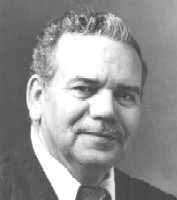Friday, March 02, 2007
Forging beyond the first draft
A friend sent the first draft of a story and it wasn’t good. My friend tends to beat herself up when the writing doesn’t come easily, but she shouldn’t. It is OK when a first draft fails to be brilliant—provided the writer understands that the draft is just the beginning of the work.
The writer fails only if he or she tries to foist the draft on readers—or dumps it on an editor to salvage.
Some writers in journalism pay lip service to the idea of revising, but the truth is they don’t want to do it. As soon as they get a story in written form, however rough, they want to move on to the next one.
The nature of journalism tends to encourage impatience and short attention spans—or at least gives these writers an excuse for their attitude. Some stories must be written on deadline, with no time to rewrite. Because rewriting is sometimes not feasible, the writers find it easy to avoid even when it is feasible. The writers get in the habit of regarding rewriting as an artsy-craftsy indulgence. They get unspoken reinforcement from editors who accept rough drafts and publish them as is or who do the revision the writers should be required to do.
The truth is, though, that often the reporter has time, or can arrange to have time, for rewriting. Many news and feature stories need not be written on deadline.
The better writers learn to embrace the opportunity to do new drafts, and some enjoy it. They learn to throw out words, phrases, paragraphs that don’t serve the story.
Revising allows them to:
First drafts might come out better more often if writers would take the trouble to plan them. Many journalists don’t. This is another idea they pay lip service to but fail to practice.
Instead of organizing the story, they concentrate on writing a clever lead, or what they imagine to be a clever lead. They hope the rest of the story will flow from their lead. If the story is the least bit complicated, this is a route to disaster.
Again, it is all right if the first draft is disastrous, so long as you revise it. But at some point, you need to map out the story, so why not do it before the first draft and get ahead of the game? You may still need to revise that draft, but the revision will probably be considerably easier.
I mentioned my friend who was having trouble with a story. A couple of days later, she sent another draft and it was much better. I knew it would be. My friend is a pro.
Labels: first draft, organizing, revising
Forging Process
Forging Process
Forging Process
<< Home

